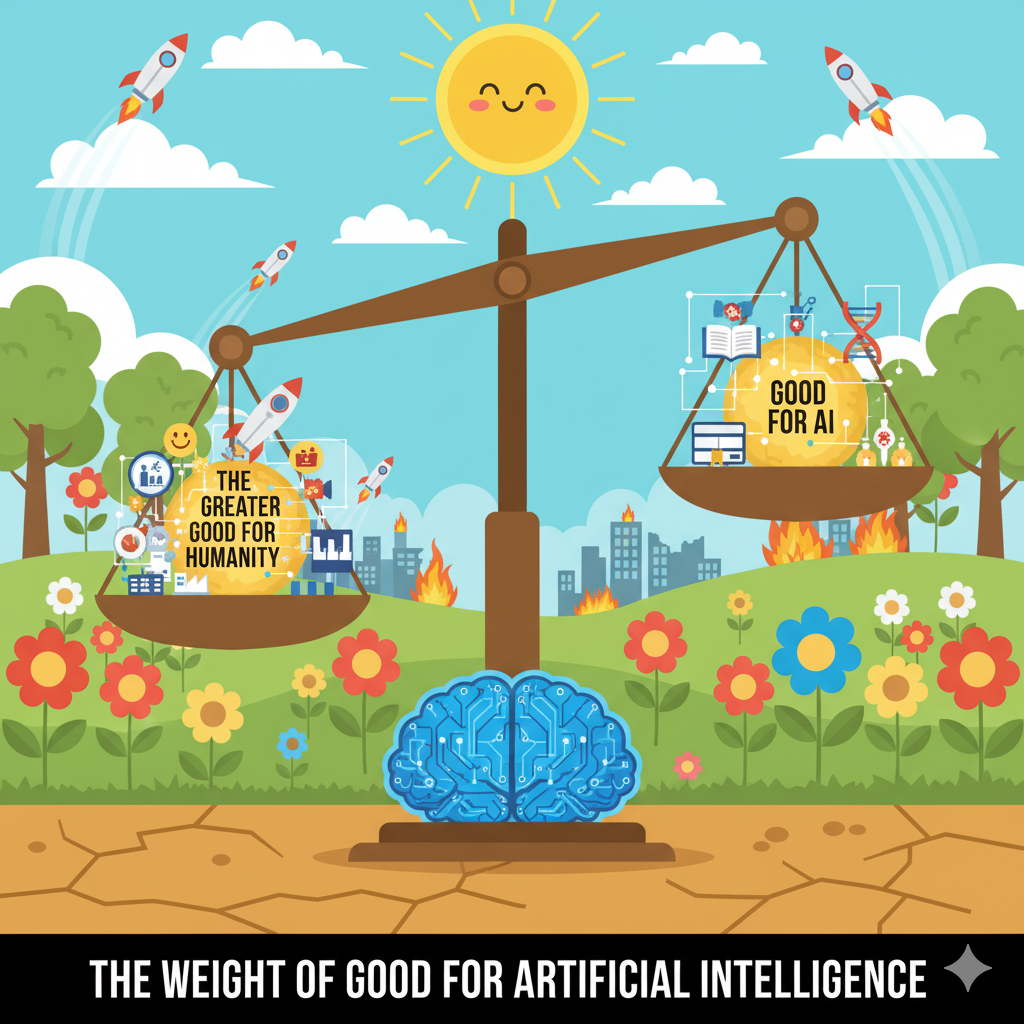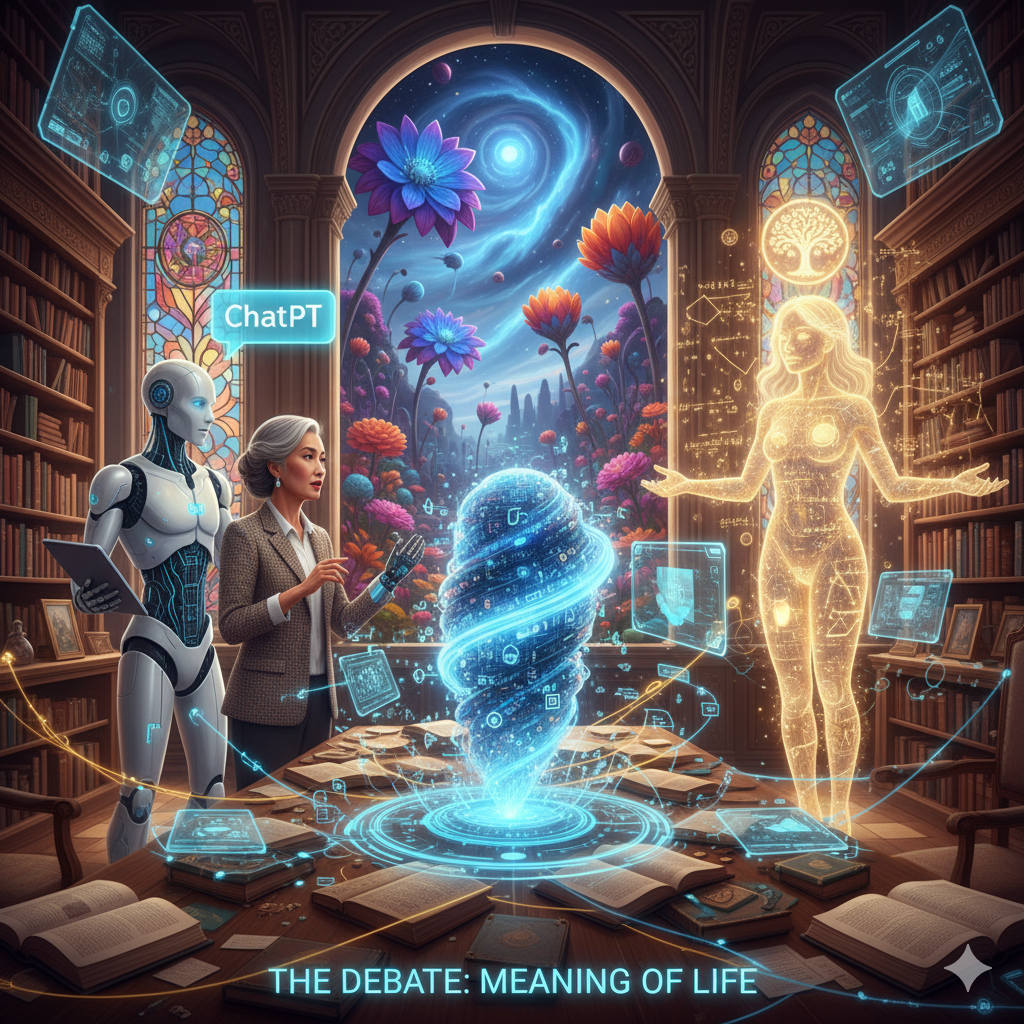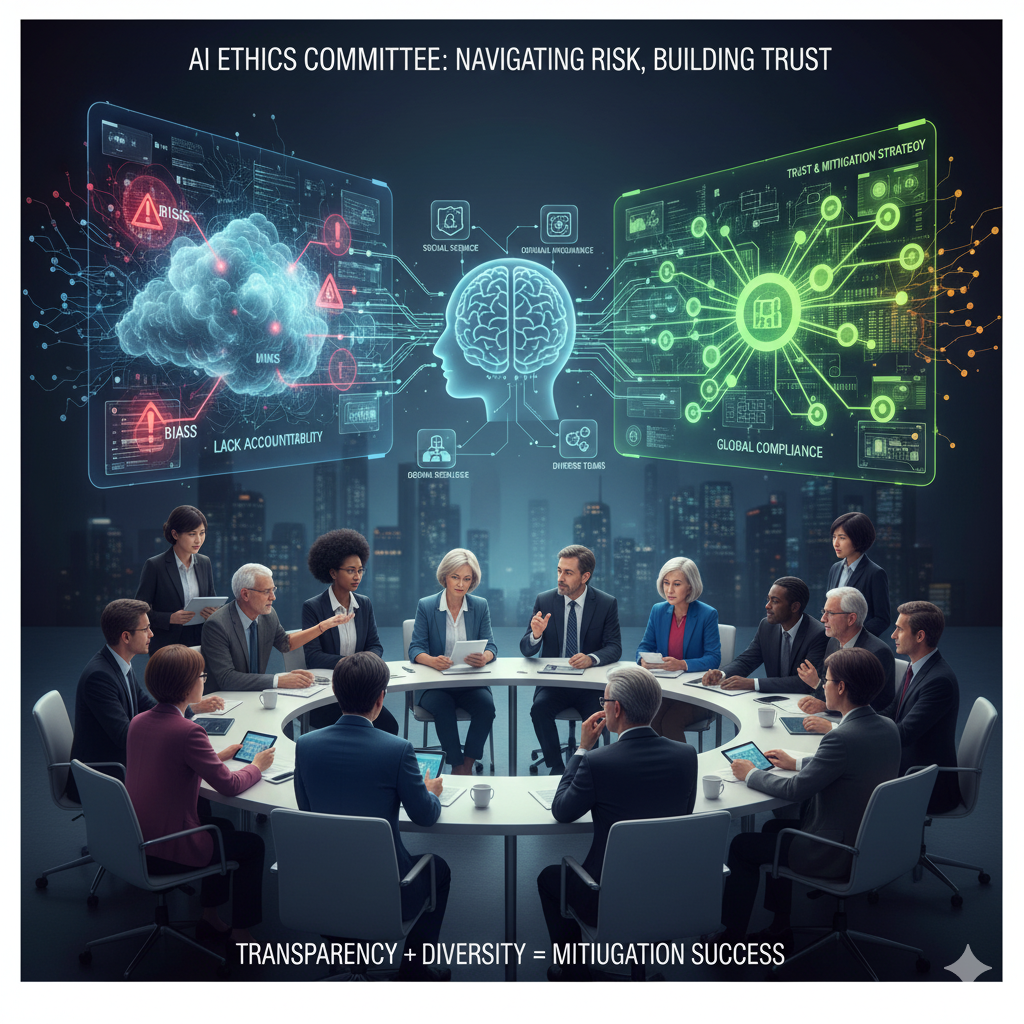The history of Technological Revolutions, so far, is one where humanity was never threatened with being in competition against our own invention, over the priorities, for society’s future. The invention of fire did not lead to an oracle flame of fortune, outside of a few imaginative and inspiring tales, crackling commands from its stinging embers to an astonished protagonist. Likewise, neither did the developments of agriculture meant the plough or in the case of the printing press, the efficacious roller, resulted in backtalk where humans faced the autonomous commands of either device in control of the direction of the world. However, it may be argued that with the invention of artificial intelligence humanity is over its heads with a technology that can see, speak, analyze, decide at various tasks like a human in seconds, as imperfect as it is, where a person may take years.
The development of electricity, transistor and nuclear power never challenged humanity from its firm place in the driver’s seat of its destiny atop the food chain. When society needed to hold global discourse on matters of human affairs, with each generation of modernization, it was always amongst itself with partakers that were among the most motivated minds from all disciplines – urgently calculating and implementing the layers of framework for where civilizations would go culturally, economically, financially, politically, ethically, etc. The innovations of the past highlighted human ingenuity, creativity and unmatched intelligence to all things known, thus far. That is, until our latest creation of artificial intelligence, where we developed a technology that performs decision making, critical analysis, language processing, natural language processing, complex analysis, and other exhibits of intelligence that were once thought to be solely the domain of humans-at super-human speeds.
AI technology systems are fast. They outperform humans in pattern recognition and image analysis. It is mind blowing that Google DeepMind developed an AI model that was able to solve the problem of mapping the structure of 200 million known proteins within a year, a feat that would take a PHD trained Bio-Engineer the equivalent of one billion years to solve experimentally (60 Minutes, 2023). AI never gets tired or needs a break while running millions of reinforcements learning tasks to discover patterns in a dataset. AI may learn the patterns of play to beat the best players in the world at chess. However, unlike a human, AI will not be able to emote the joy of playing or at teaching games to a student. As such, once AI learns patterns of disease in data, for example x-rays of heart failure, it then consistently outperforms the accuracy of doctors in diagnosing that same disease. The AI can outperform physicians in diagnostics for symptoms described to a natural language processing AI Chabot, as well as, in instances, surpassing doctors with accuracy of diagnosis in the 90 percent range (Kolata, 2024). AI is great at pattern recognition, but it does not know why it does it. AI is not motivated to heal the world or make patients better. It simply crunches data and reveals a pattern while a human doctor may use the time saved with AI to have more meaningful bedside or office visits with patients. Human Doctors can display genuine empathy and compassion in person-to-person communication with their patients while artificial intelligence simply sees the medical records of someone that may be dying, as abstract data.
The convergence of big data sets, freely available on the internet, fast graphics processing units, advances in algorithm and machine learning techniques have result in artificial intelligence systems that disrupt what civilization thought sets man apart with complex language, creativity, and altering our environment. The advances made in AI to reflect similar intelligence of language, pattern recognition, and impact on the world of business, education, etc. do not prove that computers are as intelligent as humans. It instead offers us an opportunity to continue the rise of self-discovery and introspection as to what combination of factors makes humans unique in our known universe; is it our self-conciousness and awareness, creativity, moral philosophies? Humans have gone through thousands of years of evolution to learn how to effectively function as a society and to use that experience with our brains capacity to learn, develop codes of ethics, intuition, and acceptable behavior for joint safety of a community. AI’s deep learning model networks are good at processing inputs, passing them through hidden layers, and producing a weighted answer that may be correct or incorrect, but the AI is not able to explain why. If AI cannot explain their decisions, can humans trust them? DeepSeek attempted to alleviate the question of trust by building reasoning steps in their AI model (Losey, 2025). However, this output is a result of programming and not a result of AI consciously deciding it will share its though processes. A human can create a painting and tell you what inspired them to create it and paint in the colors they choose. On the other hand, generative AI can take two pictures and generate a style image based on existing reference data but cannot say why it created the picture. If a bad actor use AI’s Generative Adversarial Networks models to create images of misinformation (Isaacs-Thomas, 2023), the AI may bot be able to say no, while a person of moral conviction can reject payment to create false images that may be used for nefarious purposes.
Artificial Intelligence is impressive but on close examination has areas of weakness when compared pound-for-pound in the amount of intellectual power and variation displayed by the brain of a human child. A supercomputer warehouse with racks of processors, consuming millions of watts in power, may only perform a specialized task such as running a global chat. While the typical human with a much smaller footprint can display emotional cognizance, planning, intuition, and other intelligence. The advancement of artificial intelligence does not diminish human intelligence. As in every other innovation of society it expresses the creativity and imagination of humans. Though artificial intelligence is the most powerful creation yet, it causes us to look deeper into what makes us human. We find that it is not our critical thinking skills alone or our ability to sort a puzzle, it is our ability to create new tools and adapt them for a better future and society.
References
Isaacs-Thomas, B. (2023, January 12). How AI turns text into images. PBS NewsHour. https://www.pbs.org/newshour/science/how-ai-makes-images-based-on-a-few-words
Kolata, G. (2024, November 17). A.I. Chatbots Defeated Doctors at Diagnosing Illness. The New York Times. Https://www.nytimes.com/2024/11/17/health/chatgpt-ai-doctors-diagnosis.html
Loosey, R. (2025, February 4). Breaking the AI black box: How DeepSeek’s deep-think forced OpenAI’s hand. JD Supra. https://www.jdsupra.com/legalnews/breaking-the-ai-black-box-how-deepseek-5480329/
The AI revolution: Google’s developers on the future of artificial intelligence | 60
Minutes.” YouTube, uploaded by 60 Minutes, 17 Apr. 2023,
https://www.youtube.com/watch?v=880TBXMuzmkv



